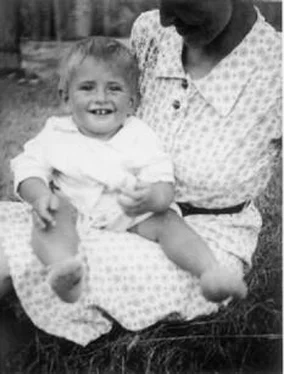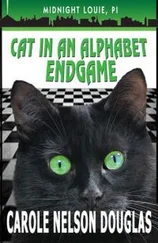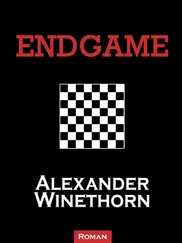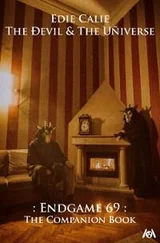Laucks frequently wore a small, black-enameled lapel pin bearing a gold Nazi swastika. Amazingly, it never seemed to attract much attention. He didn’t wear it all the time, but often enough, and it didn’t seem to inhibit him when he went to a Jewish delicatessen to get his favorite sandwich of pastrami on rye, or when he was talking to Jewish chess players. One player, William Schneider, said he was embarrassed when he and Laucks—sporting his swastika—were driving back from a tournament and they stopped at a Jewish restaurant. No one said anything about the swastika, or even seemed to notice it. In addition to the pin, Laucks often wore—weather permitting—a small-brimmed Alpine fedora with a feather in the band, adorned with emblems from the countries to which he’d traveled. He ostentatiously dressed in lederhosen at times, and for a few years even sported a Hitlerian mustache. When he entered a tournament, dressed in a khaki shirt and pants and dark tie and displaying that mustache, it was as if a doppelgänger of Der Fuehrer had been incarnated. In his home he hung Nazi flags in prominent locations and displayed airplane models of Messerschmitts and Junkers as well as an oil painting of Adolf Hitler and other memorabilia from the Third Reich.
Laucks was inarguably one of the most eccentric people in the New York chess community, with conflicting values and erratic behavior. But despite his Nazi trappings, he rarely talked about his political beliefs. His financial patronage of teams and players could always be relied upon, and he was the sponsor of many chess events, some major. He’d also formed a fully functioning chess group—the Log Cabin Chess Club—that met in the finished basement (decorated to look like a log cabin) of his spacious house in West Orange, New Jersey. A number of players, some outcasts or close to homeless but with master-level playing ability, actually lived—on and off—in the house with him. Laucks’s wife and two children lived in another house, in Old Lyme, Connecticut, and Laucks rarely visited them, preferring to stay in New Jersey with his chess cronies.
Aside from her self-serving desire to travel, Regina insisted on being part of the tour because she didn’t trust one of its participants: the shifty-eyed Norman T. Whitaker. He was a disbarred lawyer who’d served years in Alcatraz and Leavenworth for a variety of crimes and confidence schemes, including the extortion of more than $100,000 by claiming (falsely) that he knew the whereabouts of the missing Lindbergh baby. Whitaker, known as “The Fox,” the name he was referred to in the Lindbergh duping, had also been imprisoned for car theft and for raping a twelve-year-old girl. When he was in his sixties, he proposed marriage to a fourteen-year-old. Regina worried that his pedophiliac tendencies might apply to boys as well as girls, and she didn’t want him to be alone with Bobby on the trip. Why Whitaker was accepted as a part of the Log Cabin team or in the chess community at all is a difficult question to answer, beyond noting that at the time of Laucks’s journey Whitaker was still a powerful player at age sixty-six, and in his prime he had been one of the strongest players in the nation. He also had a charming way about him, as do most confidence men. His chess prowess and velvet tongue may have blinded some people to his despicable past, proving the adage that sometimes chess players make strange team fellows.
In contrast to Whitaker, one of the chess caravan’s more delightful players was Glenn T. Hartleb, an expert-level Floridian. A tall, gentle man with steel-rimmed glasses and a perpetual smile, Hartleb greeted everyone he met—champion or patzer, beginner or veteran, child or octogenarian—by bowing low and saying with deep reverence, “Master!” When asked why he used this salutation, he said, “In life we are all masters,” countering a past champion’s chestnut, “In life we are all duffers. ”
The disparate team crammed into Laucks’s unreliable 1950 Chrysler station wagon, which contained everyone’s luggage, chess sets and boards, food, and sleeping bags—some of it precariously strapped on top—and like the Joad family in The Grapes of Wrath , gunwales straining, shock absorbers depressed to their limits, they were ready. “Let’s schuss !” said millionaire Laucks jovially, using his favorite expression, and off they sped at seventy miles an hour down the turnpike for a hair-raising trip (Laucks was a dangerously careless driver). Bobby sat up front between the fascist and the con man.
As the Cabineers roamed through the South, stopping at towns for either prearranged or hastily organized matches, Whitaker as best player would invariably play board one, and Bobby board two. Bobby, feeling as though he were playing hooky from school, had a good time competing in the matches, usually at the relatively leisurely time limit of sixty moves in two hours. Most of his competition was stiff but nothing he couldn’t handle. While in the car, he also played hundreds of games with his fellow team members, and with the exception of his games against Whitaker, he usually won.
“I want to see the alligators,” Bobby piped up as they drove through the Everglades. “Let’s stop—I want a soda,” he could also be heard to say frequently. His little-kid complaints, including the traditional “Are we there yet?” annoyed some team members, and behind his back they began referring to him as “The Monster.”
The trip was not entirely expense-free for the Fischers. Although Laucks, with his great wealth, could have covered everyone’s expenses, he’d frugally pick and choose where, when, and how he wanted to spend his money. On some occasions, the team would stop at a fairly expensive restaurant and he’d announce to everyone, “Order anything on the menu you want, but no alcohol. ” At other times Bobby and Regina had to pay for themselves.
While in the South, Bobby was getting his first exposure to racial prejudice. Blacks were still not allowed to sit at the counters. Bobby had to ask his mother what it meant when he saw a drinking fountain that was labeled COLORED ONLY. Regina was furious at the prejudice she was witnessing, but no one else seemed to care.
One of the men on the trip began to hint to the others that he was ready to seduce Regina and that he thought she was a willing seductee; he became a laughingstock one night when she adamantly refused him entrance to her room.
Crammed in the car, the group sometimes tired of chess talk and reminisced about other adventures, real or imagined. Whitaker cracked at least one joke a day, usually tasteless: “I know a woman who will pay me one thousand dollars to see me in the nude: She’s blind.” Bobby often asked for explanations. “See me later, kid; I’ll tell you,” someone would pipe up.
During the six-hour trip on the ferry from the Duval Street dock in Key West to Havana, Bobby and an older player, Robert Houghton, played blindfold chess, visualizing the evolving game and calling out their imaginary moves; but when they reached nine or ten moves and the game became more complicated, the positions began to dissolve in Houghton’s mind and he couldn’t continue. To Bobby, the positions were as clear as if he had the game set up on a board in front of him. After a few additional attempts sans board and pieces, the invisible match was abandoned and they played on the portable set. Bobby won dozens of quick games during that session, not losing one.
Havana in 1956 was a feisty, corrupt city. Tourist agents called it “The Pearl of the Antilles,” but it was more provocatively referred to by others as “the sexiest city in the world.” Filled with gambling casinos, brothels, and streetwalkers, and with rum costing only $1.20 per bottle, the city had a reputation for debauchery. More than 250,000 American tourists went to Havana that year, most to have a wanton weekend or two. The Cabineers, however, were in Havana to play chess, and although it’s possible that some of the men went to the infamous Shanghai Theater or to other shadowy places at night, the team members played a match almost every day.
Читать дальше


![Антон Текшин - EndGame [СИ]](/books/394477/anton-tekshin-endgame-si-thumb.webp)









